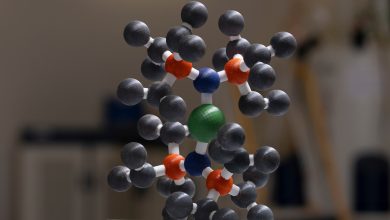Unlocking the future of biotechnology: ICED revolutionises enzyme design

Researchers from the Manchester Institute of Biotechnology (MIB) and the Institute for Protein Design (IPD) have launched a groundbreaking initiative poised to transform the landscape of engineering biology for industrial applications. The International Centre for Enzyme Design (ICED) brings together internationally leading research teams to establish a fully integrated computational and experimental platform to develop a new generation of industrial biocatalysts.
The centre has been awarded £1.2m through an International Centre to Centre grant from the Engineering and Physical Sciences Research Council, part of UK Research and Innovation. Led by Professor Anthony Green, Interim Director of the MIB, along with Professor Nicholas Turner and Dr Sarah Lovelock, and in partnership with Professor David Baker from the Institute of Protein Design (IPD) at the University of Washington, ICED will employ the latest deep-learning protein design tools to accelerate the development of new biocatalysts for use across the chemical industry. The centre will deliver customised biocatalysts for sustainable production of a wide range of chemicals and biologics, including pharmaceuticals, agrochemicals, materials, commodity chemicals and advanced synthetic fuels.
Biocatalysis uses natural or engineered enzymes to speed up valuable chemical processes. This technology is now widely recognised as a key enabling technology for developing a greener and more efficient chemical industry. Although powerful, existing experimental methods for developing industrial biocatalysts are costly and time-consuming, and this restricts the potential impact of biocatalysis on many industrial processes. Furthermore, for many desirable chemical transformations there are no known enzymes that can serve as starting templates for experimental engineering. In ICED we will bring together leading computational and experimental teams from across academia and industry to bring about a step-change in the speed of biocatalyst development. The approaches developed will also allow the development of new families of enzymes with catalytic functions that are unknown in nature.
Professor David Baker, Co-Director and lead researcher from the Institute of Protein Design says; “Accurately designing efficient enzymes with new catalytic functions is one of the grand challenges for the protein design field. We are thrilled to be working with Professor Green and his team in the MIB to address this crucial biotechnological challenge.’’
The design tools developed throughout the project will be readily available to specialists and non-specialists to support their own enzyme engineering and biocatalysis needs. As the centre develops, we expect to grow our partnerships with the wider academic and industrial sector to ensure that we can best serve the needs and ambitions of the global biocatalysis community.
With the chemical and pharmaceutical industries contributing £30.7bn to the UK economy alone, technologies like biocatalysis are poised to revolutionise how every day, essential products are made while also benefitting our health and our environment.




